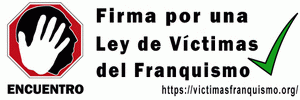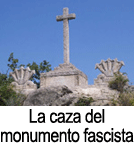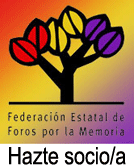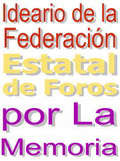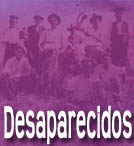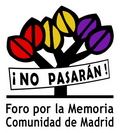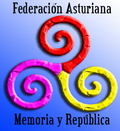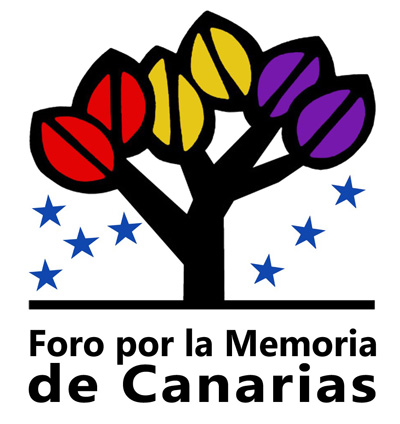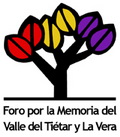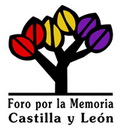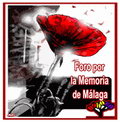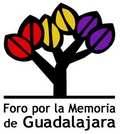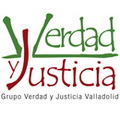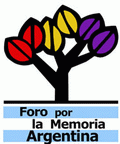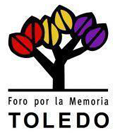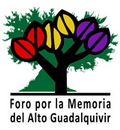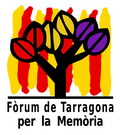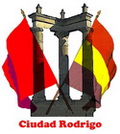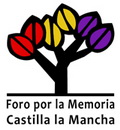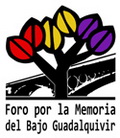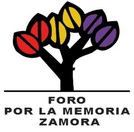The Spanish Holocaust: Inquisition and Extermination in Twentieth-Century Spain
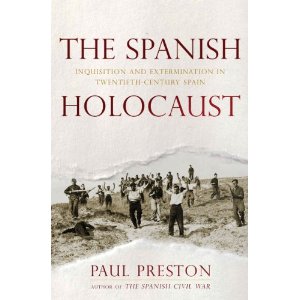 Genocide amid the olive groves
Genocide amid the olive groves
Mercedes Camino commends the untangling of atrocities committed during the Franco era
In a book published in 2004, Montse Armengou and Ricard Belis asked whether a «Spanish Holocaust» had taken place as a result of the 1936-39 civil war and the 1939-75 dictatorship that followed it. Les fosses del silenci: Hi ha un Holocaust espanyol?, which expands the work Armengou and Belis did for a documentary screened on Catalan television in 2003, outlines the elimination drive that underscored right-wing purges. To these authors, these purges amounted to genocide, exemplified by the mass graves that only began to be dug out in late 20th-centurySpain. Paul Preston’s new book, The Spanish Holocaust: Inquisition and Extermination in Twentieth-Century Spain, further advances this line of thought, illuminating a convoluted historical period and situating it squarely within what Eric Hobsbawm famously described as the «age of extremes».
The Spanish Holocaust offers a highly detailed historical account of countless massacres, illustrated and complemented with accounts of myriad individual cases that many readers will find disturbing.Prestonpainstakingly traces the arbitrary processes of «cleansing», where friends and family were often caught out in a spiral of reprisals. This staggering wave of repression hit not only militants and politicians but also civilians – with wives, girlfriends and children arrested, raped, tortured or killed in lieu of an absent husband, father or boyfriend. While the author is not kind to the Rightists who rose against theSecondSpanishRepublic, his sympathies are extended to victims on both sides of the political spectrum.
The book opens with a section dedicated to «The origins of hatred and violence», which investigates the ideas and events leading to the 1936 military coup, including a chapter on the «Theorists of extermination». Throughout,Prestonmasterfully disentangles a complex maze of actions, interpretations and thoughts, displaying the capacity for synthesis that has made his works essential for an understanding of this era. The systematic killings and abuses that fill many pages of The Spanish Holocaust were justified from the outset by the linking of Judaism, Communism and Freemasonry that permeated the discourses of the Spanish Right from the early 1930s, and which became a familiar mantra during Franco’s dictatorship.
Preston’s knowledge is deep and encyclopaedic, and his status as the foremost historian of this period is incontestable. This book amply corroborates that accolade. In addition to the astonishing depth of knowledge demonstrated here, the author displays his gift for historical narrative by seamlessly merging facts, dates and names with personal tragedies. The Spanish Holocaust also incorporates the latest investigations of Spanish, French and English scholars, including Francisco Espinosa’s meticulous work on one of the most infamous Rightist generals, Queipo de Llano, to whose gruesome despotism Preston dedicates a full chapter, «Queipo’s terror: The purging of the south». Throughout this area, asPrestonindicates, the feeling of landowners towards the peasants was one of «near racist contempt», regarding «the proletariat as a subject colonial race». Repression was therefore justified as «a patriotic necessity» on the grounds that Republicans and Leftists were nothing but «hordes of barbarian invaders».
Readers may at times feel overwhelmed by the cruelty of the events portrayed, and the horrific circumstances in which many people, mostly civilians, met their deaths, often following dreadful suffering. To give one example of the many included in this book, in the town ofRota: «Despite the absence of left-wing violence, the Falange and the Civil Guard set about the systematic annihilation of the town’s relatively few liberals and leftists. They were tortured and forced to drink castor oil, and over sixty were shot at night, their ears cut off as trophies.» In the neighbouring village, Villamartín, the rebels decided to «annihilate all members of trade unions and of the Socialist and Republican parties and any Republican who had held any elected office».
Prestoncannot be accused of ignoring the extrajudicial killings «behind Republican lines», which he covers in chapters 7 and 8. This violence largely followed the coup and was especially directed at «rebel army officers and the clergy…landowners and businessmen», resulting «in a tumultuous process that seemed to the rest of the world an orgy of violence». He untangles and describes in detail one of the most notorious and confusing of those episodes: the massacre of right-wing prisoners in Paracuellos del Jarama. These assassinations took place when the prisoners were being evacuated fromMadrid, with only a few hundred of them reaching their destination, while some 2,200-2,500 (a figure multiplied by the right-wing press to 12,000) were simply shot.Preston, however, scrupulously extricates the factors instigating those crimes, providing ample evidence that the majority of them took place during the first months after the coup and noting that «had the basic norms of social coexistence not been torn asunder by the military coup, the bloodshed in the Republican rearguard would never have taken place on the scale seen».
By contrast with right-wing massacres, Republican crimes such as those of Paracuellos were widely documented, and their victims were honoured during the nearly 40 years that the regime lasted. In particular, the assassination of members of the clergy was fully exploited outsideSpain, presenting the Republic as the cause and instigator of their murders. To counter this claim, Preston cites abundant examples of the struggle by some Republicans to prevent such extrajudicial killings and abuses – a phenomenon that was not mirrored by the actions of the Rightist rebels for whom the purges were part of an orchestrated plan: «There were no such ambiguities in the rebel zone where the working class and the liberal bourgeoisie were either exterminated or terrified into near total passivity.»Prestonalso unravels crimes committed by common criminals and agents provocateurs.
In this context, the murder of the poet Federico García Lorca was,Prestonnotes, «merely a drop in an ocean of political slaughter». Lorca became a target not only on account of his homosexuality but also because he had taken sides with the Republic publicly, slighted the Christian conquest ofGranada, spoken out for Gypsies and censured the local bourgeoisie. Indeed, his murderer went so far as to presume to have killed him «for being a queer». Like Lorca, feminists, writers, politicians and teachers were imprisoned, tortured or murdered because of their ideas or lifestyles. It is probably no consolation to know that as a sort of comeuppance, as Preston notes in the «Epilogue», a handful of those murderers faced unstable lives, perhaps haunted by «remorse», «repressed guilt» or «visions of the ghosts» of their victims. But these afterthoughts, perhaps designed to alleviate the sense of horror and discomfort that reading this book provokes, offer neither closure nor justice to the millions whose lives were stolen or blighted.
The use of the term Holocaust raises the spectre of unsolicited comparisons, althoughPrestonoffers a disclaimer at the outset of the book attesting to his deep «sorrow and outrage» about Nazi crimes against Jews. But given the term’s historical specificity, its application to the Spanish context will remain contentious. Nevertheless, for sheer depth of knowledge, this book will stay on the shelves of those interested in this historical period for years to come. The Spanish Holocaust is the culmination of a truly outstanding career. To his peerless scholarship,Prestonadds dynamic prose and a deeply humane feeling for those caught in events they did nothing to deserve or to bring about. Although no historical work is ever definitive, The Spanish Holocaust will come as close to that as possible. In terms of attention to detail and synthesis, this surely is a book that will stand the test of time.
The Author
Paul Preston says he became interested in the Spanish Civil War by seeing it as a rehearsal for the Second World War. He was attracted by «a veritable cornucopia of everything that interested me…Hitler, Mussolini, Stalin, Trotsky, Chamberlain, Churchill et al, plus all the ideologies: communism, fascism, socialism, anarchism, Freemasonry. I had a ball.»
He taught himself Spanish when he ran out of relevant books to read on the subject in English, and in 2005 when he was awardedCatalonia’s Ramon Llull International Prize, he learned Catalan: «I thought it would be pretty cheesy to make a speech of thanks in Spanish.» The following year, his acclaimed book The Spanish Civil War: Reaction, Revolution and Revenge was published, and he was inaugurated into theEuropeanAcademyof Yuste Foundation.
Preston, emeritus professor of international history at the London School of Economics, says that if he had not been an academic he would have liked to have been a stand-up comedian: «I see academic teaching as a minor branch of show business, but that’s the nearest I’ve come.»
The Spanish Holocaust: Inquisition and Extermination in Twentieth-CenturySpain
By Paul Preston
Harper Press
720pp, £30.00
ISBN 9780002556347
Published 1 March 2012
http://www.timeshighereducation.co.uk/story.asp?storycode=419372#.T3BKFykquTw.facebook


